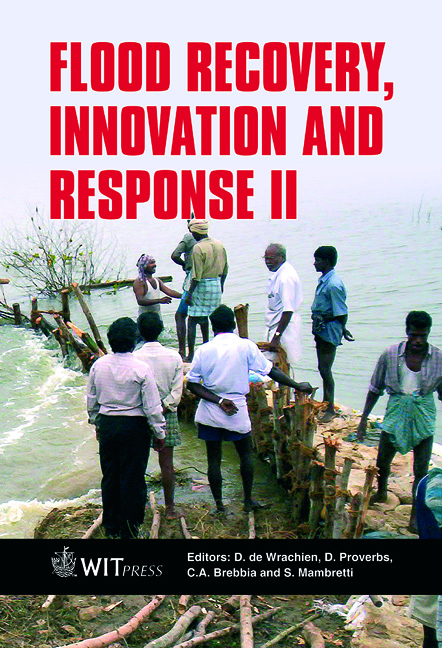Psychological Factors Affecting Flood Coping Strategies
Price
Free (open access)
Transaction
Volume
133
Pages
8
Page Range
305 - 312
Published
2010
Size
2,848 kb
Paper DOI
10.2495/FRIAR100261
Copyright
WIT Press
Author(s)
C. B. Rose, D. G. Proverbs, K. Manktelow & C. A. Booth
Abstract
There is an acknowledged need to improve the resilience of those at risk of flooding in areas of the UK. Studies of disaster preparedness worldwide indicate raising awareness of a hazard does not necessarily engender action. In the UK the majority of the at-risk population do not display adaptation behaviours until they have experienced one or more flood events, a finding not adequately explained by levels of information provision or financial pressures. An appreciation of the psychological underpinning of current behaviour patterns, including decision-making processes, can illuminate our understanding of the strategies employed. A review of relevant psychological theories affecting adaptation behaviours in a variety of hazard situations is presented. It is suggested that psychometric measures might be employed as capability indicators and the adoption of such techniques may contribute to an improved resilience in the future. Keywords: flood, resilience, psychology, preparedness, adaptation, capability. 1 Introduction In the context of anticipated climate change [1], the UK government has enacted legislation in the form of the Climate Change Act [2]: increasingly worldwide attention is focussed upon assessing vulnerability to extreme events, improving upon recovery plans to deal with their aftermath and examining the ways in which adaptation to climate change might enhance resilience in the future.
Keywords
flood, resilience, psychology, preparedness, adaptation, capability





